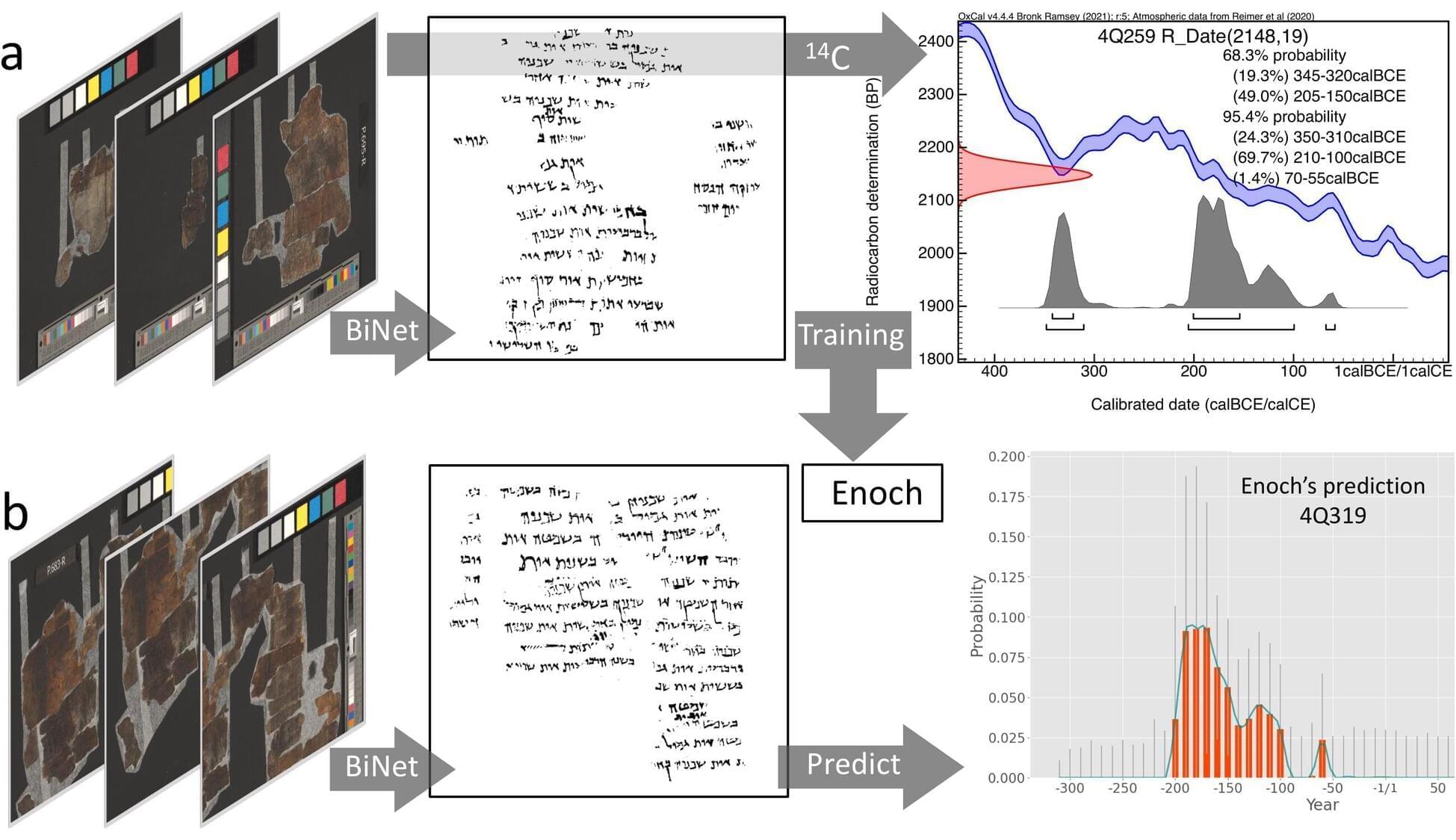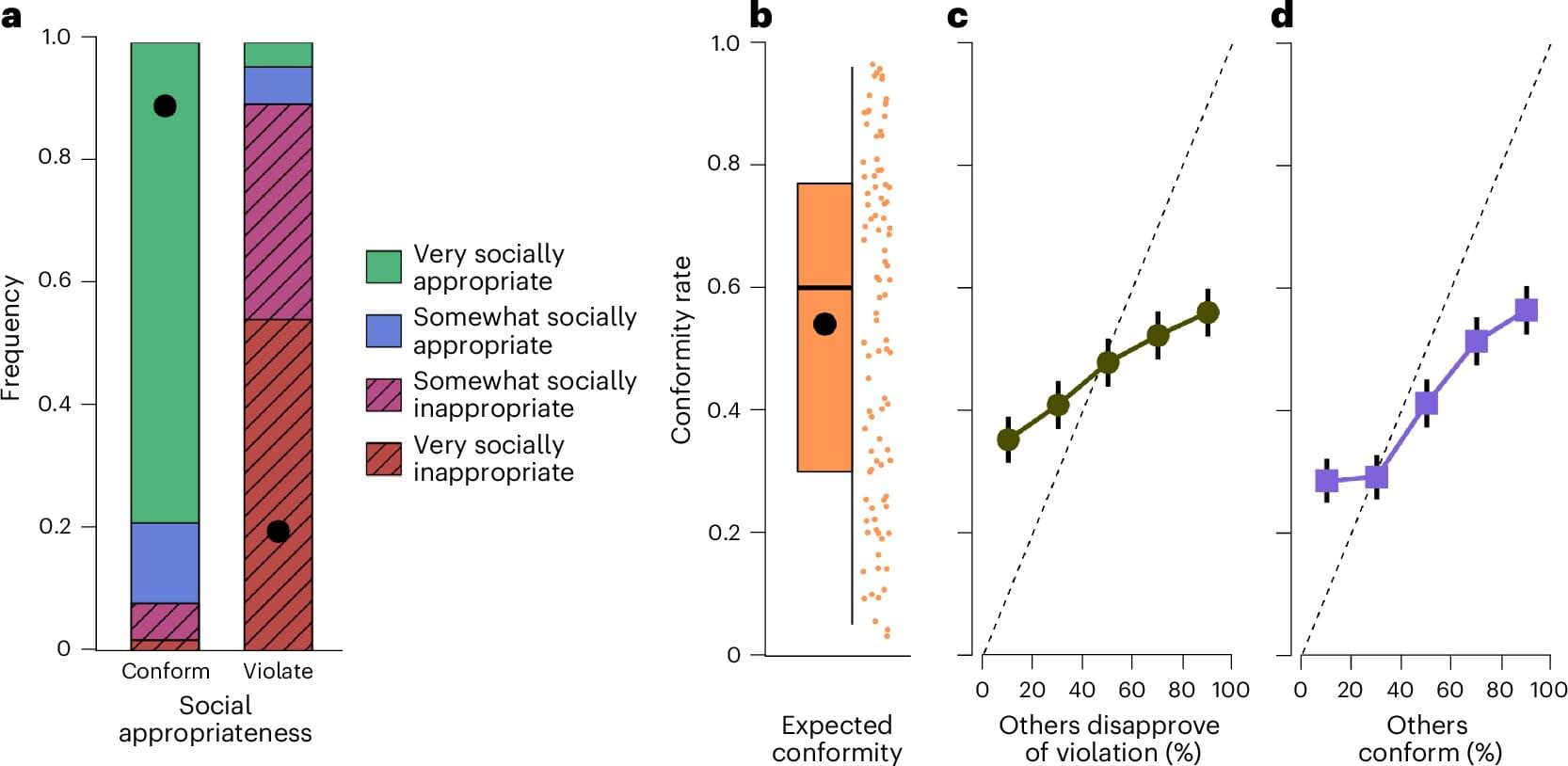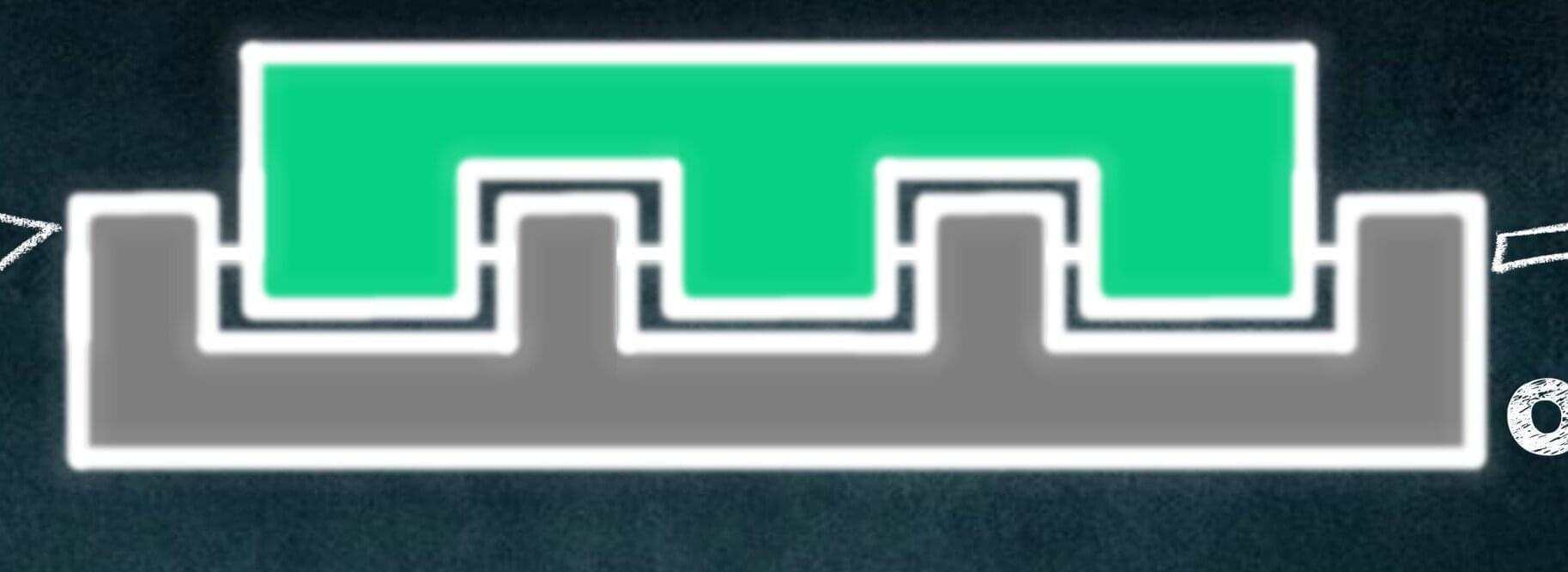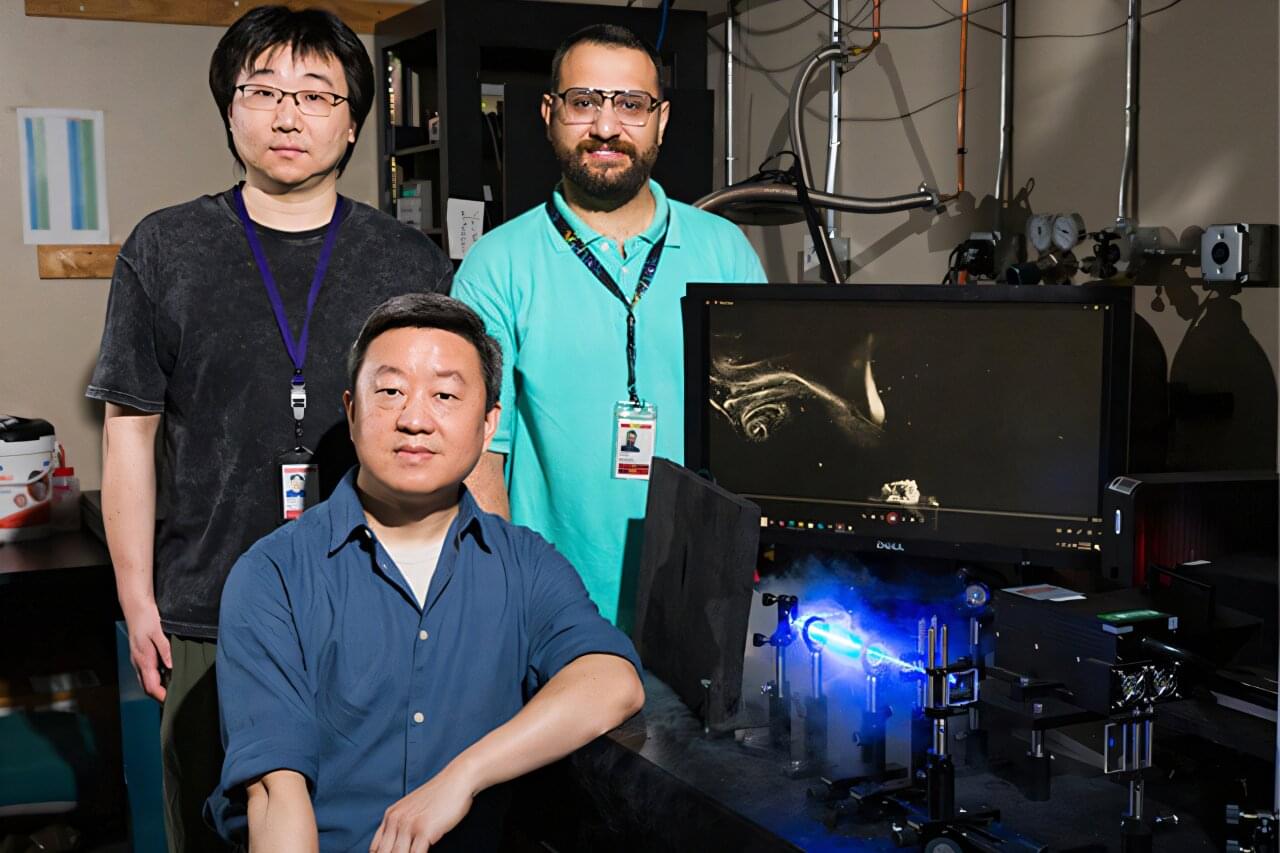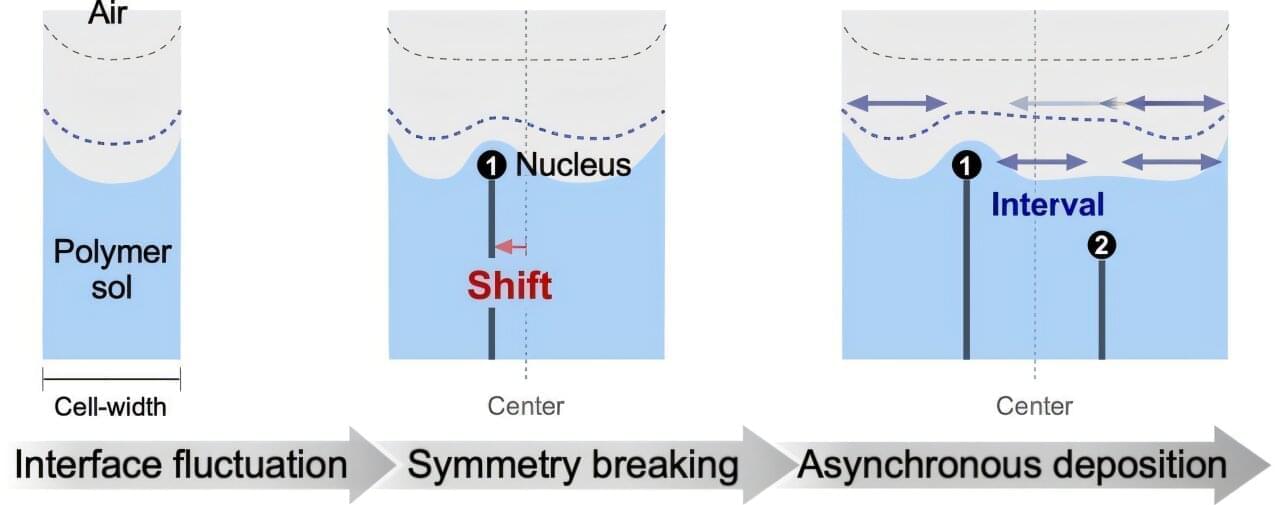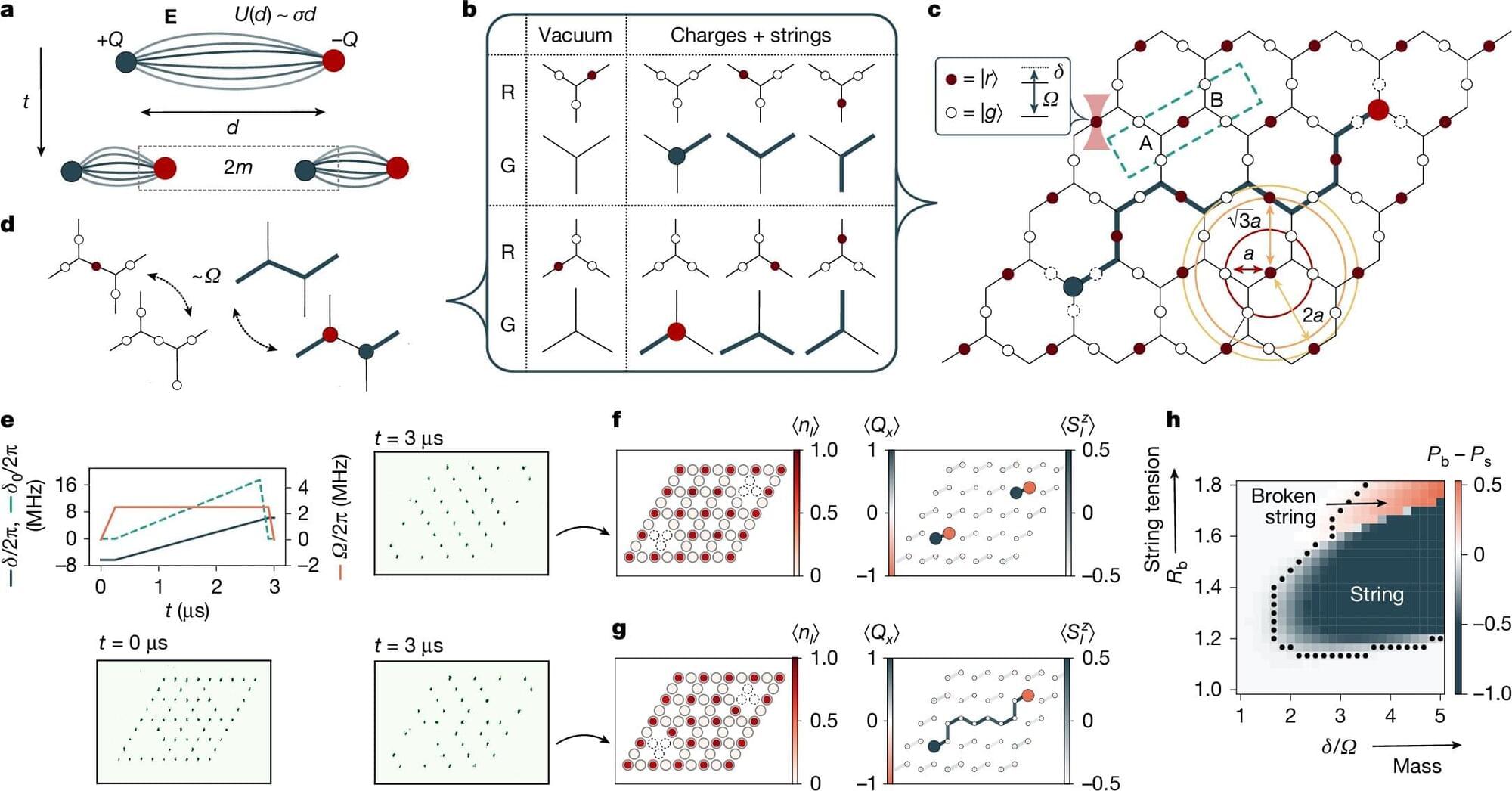Since their discovery, the historically and biblically hugely important Dead Sea Scrolls have transformed our understanding of Jewish and Christian origins. However, while the general date of the scrolls is from the third century BCE until the second century CE, individual manuscripts thus far could not be securely dated.
Now, by combining radiocarbon dating, paleography, and artificial intelligence, an international team of researchers led by the University of Groningen has developed a date-prediction model, called Enoch, that provides much more accurate date estimates for individual manuscripts on empirical grounds.
Using this model, the researchers demonstrate that many Dead Sea Scrolls are older than previously thought. And for the first time, they establish that two biblical scroll fragments come from the time of their presumed biblical authors. They present their results in the journal PLOS One.
